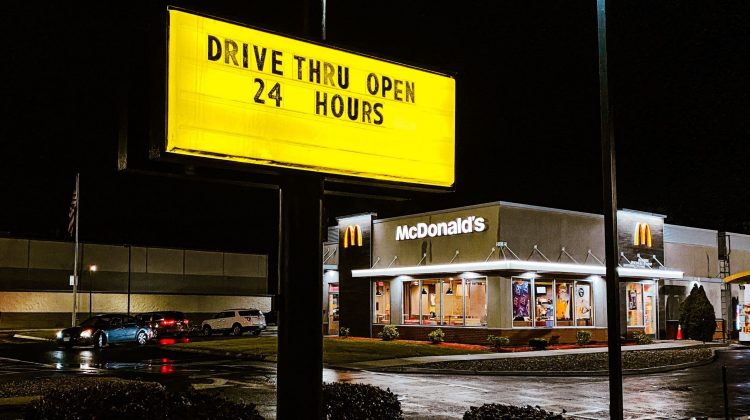LYNN — Establishments with 24-hour food sales in the city will now be required to have video surveillance.
The City Council unanimously approved the measure during its meeting last week with the passage of a city ordinance.
The policy change was billed as an important step in ensuring public safety and is in direct response to the shooting of a 16-year-old working at Wendy’s on Boston Street earlier this year.
According to Assistant City Solicitor James Lamanna, the city already has an ordinance from 2013 requiring 24-hour convenience stores to have video-surveillance systems.
“This is for public-safety reasons,” Lamanna said. “12 a.m. to 5 a.m. are the hours that are most dangerous for clerks.”
Despite the ordinance passing the council unanimously, the policy change was met with some opposition.
In a letter addressed to the City Council last week, the American Civil Liberties Union of Massachusetts criticized the ordinance.
“It violates the constitutional rights of business owners, unfairly places an economic burden on businesses, and harms the immigrant community,” the letter read.
The ACLU described the ordinance as an “unfunded mandate” that would put an undue burden on business owners.
“As written, the ordinance allows the City of Lynn to commandeer private property and force business owners to implement, pay for, and execute the city’s public-safety policy,” it added.
The ACLU also wrote that the new policy could be used by Immigration and Customs Enforcement in immigration investigations, with ICE agents being “likely to join local police in demanding business owners hand over footage from their camera systems without due process.”
“Many in immigrant communities are already cautious around law enforcement due to fears of racial profiling and deportation,” the ACLU wrote. “The effect of this policy would be to reduce trust between these communities and the Lynn Police Department, which will harm public safety community-wide.”
Lynn United for Change Director Isaac Simon Hodes spoke against the policy, referencing the ACLU’s letter in his remarks to city councilors.
“I would hope that this body would consider tabling this and having some real thoughtful conversation with yourselves and with residents about how you’re going to do what you’re trying to do with public safety… without opening the door to enormous civil-liberty problems,” Hodes said.
Lamanna said the city’s Law Department had determined the ordinance was constitutional, and that it would not require businesses to turn over video. However, the footage would have to be maintained and accessible for 30 days to allow law enforcement to take any necessary legal measures to acquire it.
“This ordinance does not give the Police Department the right to seize the video,” he said. “There’s nothing in this ordinance that requires (business owners) to turn this over.”
Ward 5 Councilor Dianna Chakoutis spoke in support of the ordinance at the meeting and added that she hopes most businesses will be willing to share video to assist in police investigations.
“I don’t think this is going to hurt anything else in the city,” Chakoutis said. “These are 24-hour businesses where we’re having problems and I agree with this 100%.”
Ward 2 Councilor Richard Starbard, who owns an auto-repair shop, also spoke in support of the new policy, noting his personal experience using onsite video surveillance at his business.
“I have cameras all over my business, inside and out,” Starbard said. “I’ve given them up numerous times to numerous police departments… I have no problem doing that.”
In a statement, Mayor Jared Nicholson said he supports the measure as an important step in the city’s expanded public-safety efforts.
“As the city works to improve public safety, ensuring that surveillance systems are not only installed in retail establishments but are also maintained and constantly functional is paramount to increasing the safety of our residents,” Nicholson said.
Police Public Information Officer Lt. Rick Connick said the department is also in favor of the new ordinance.
“(The department) supports measures that protect the public, protect employees, and provide assistance to investigators in their efforts to solve crimes,” Connick said.

